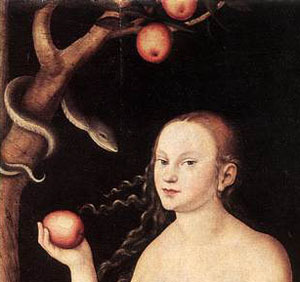Everybody likes a winner. In America, for example, “loser” is often used as an insult…
As well, and probably for the same reasons, everybody likes winning.
The problem with winners, however, is that to have a winner, you need losers. Winning is a relative situation. No losers mean no winners. When you win, you win against someone. Victory goes always at somebody else’s expense.
 We have been wondering for a while about what is going between Oracle and HP. After the latest “victory” Oracle enjoyed, the well known trial against SAP for copyright infringement, which in fact involved indirectly HP through its current CEO Léo Apotheker, we have read about new aggressive arguments from Oracle’s Big Mouth Larry, aka the Pontifex Maximus at the oracle, targeting HP.
We have been wondering for a while about what is going between Oracle and HP. After the latest “victory” Oracle enjoyed, the well known trial against SAP for copyright infringement, which in fact involved indirectly HP through its current CEO Léo Apotheker, we have read about new aggressive arguments from Oracle’s Big Mouth Larry, aka the Pontifex Maximus at the oracle, targeting HP.
These last comments from the Pontifex indeed sound to us like a formal war declaration that finally comes up, after the de-facto war status so far, at least from the oracle’s side. Since the acquisition of Sun Microsystems by the latter, the once good partnership between Oracle and HP has degraded into a bitter relationship between the two companies that could mean in a closer relationship between HP and SAP, for example. SAP might really be all for it. As a matter of fact, we do believe this would be a logic step to take, and would certainly put a strong opponent in front of the Pontifex.
The Pontifex Maximus at the oracle, however, has a strong reputation after his manners, boastings and eventual bluffing. Not precisely an example of a New England British-like traditional gentleman, though effective and results-oriented. In fact, he is the real foundation of his company’s success. Personally, as well, he has fared pretty well, being considered the sixth richest man on earth. And the question remains open: Why HP in particular? What has this Pontifex Maximus against HP?
We do not have the full record of Oracle’s history, nor any insider information source. We don’t from HP either. But still, from the public information we might have had access to, we think we have an idea of what might be the reason.
Big Mouth Larry is probably no exception from the opening statements in this post. He loves winners, and he loves winning. Therefore, he sees any activity he steps into, anything he does, as a competition, as a battle, as a contest… that he ultimately has to win. To prove himself and the rest of the world he is a winner, and the world should love and admire him the same way he adores and admires himself.
Running his company is for him nothing different from any other kind of competition, and he takes it as something where he must win. He would not stand himself if he wouldn’t. Recall the way his PR is managing the fact that a cluster made of Sun Micro servers is the fastest one managing databases: They talk about this the same way they talk of the Oracle boat winning the America’s Cup.
And there is where the matter lies. To become a winner requires him to find a loser, Otherwise, there is no winner. So considering his options, there seem to be three possible opponents: Cisco, IBM, and HP. Cisco being the weakest, in reality it’s already behind Oracle.
Both IBM and HP are phenomenal references. IBM being the master company in the IT industry, a reference for decades, and HP being the largest IT company by revenue. But from the two, HP is weaker, compared to IBM, and certainly within range for Oracle’s artillery.
In other words, HP is a “beatable” foe in the eyes of Oracle, weak enough in certain areas, like software, and big enough for any victory on them to be regarded as brilliant. Beating HP would be a triumph the industry would recognize.
IBM would still be out of reach for Oracle. At least, farther than HP. And despite the Pontifex’ ultimate wish to beat them too, the guy is probably still intelligent enough to declare he does not intend to “tease them too much”. We do not think Oracle is not going after IBM because Big Mouth Larry likes IBM; we think he realizes he would probably not succeed if he tried, and wants not to appear as a loser should anybody think he wanted to fight IBM.
So the Pontifex is looking for losers to beat so he can feel recognition for his victories, so he can feel a winner. And HP’s problem with that is just being in range. That is, in our opinion, the underlying cause in the Pontifex’ fixation with HP. The risk now for the Pontifex, however is not really being able to make it. Having the speed record of database processing does not necessarily mean winning anything.
Technorati Tags:
oracle,
hp,
ibm,
sam palmisano,
larry ellison,
leo apotheker,
sap,
sun microsystems,
management,
competition,
exadata,
database,
sparc,
server,
cluster





.jpg) Leaving aside his obvious comments, it’s the reading between the lines that catches our attention, as we see there a certain willingness to achieve that alliance. What certainly means there is some sort of motivation, and some benefit.
Leaving aside his obvious comments, it’s the reading between the lines that catches our attention, as we see there a certain willingness to achieve that alliance. What certainly means there is some sort of motivation, and some benefit.


.png/250px-Page_004_(Faust,_1925).png)

 But legacy has a deadline and does not last forever. History proves legacy is not enough, and costs empires. Ask the British about India, ask the French about Indochina, ask the Dutch about their Indies, or ask the Russians for the “xxxstan” republics. there is still a Britain, a France, Netherlands and Russia… but where did their empires go?
But legacy has a deadline and does not last forever. History proves legacy is not enough, and costs empires. Ask the British about India, ask the French about Indochina, ask the Dutch about their Indies, or ask the Russians for the “xxxstan” republics. there is still a Britain, a France, Netherlands and Russia… but where did their empires go? 
 We have been wondering for a while about what is going between Oracle and HP. After the latest “victory” Oracle enjoyed, the well known trial against SAP for copyright infringement, which in fact involved indirectly HP through its current CEO Léo Apotheker, we have read about
We have been wondering for a while about what is going between Oracle and HP. After the latest “victory” Oracle enjoyed, the well known trial against SAP for copyright infringement, which in fact involved indirectly HP through its current CEO Léo Apotheker, we have read about  future of that industry, for the good or for the bad. Apple’s influence is actually tangible in our opinion.
future of that industry, for the good or for the bad. Apple’s influence is actually tangible in our opinion. When presidential elections come up in 2012, all the people who are today from 16 to 19 will be able to vote for the first time in their lives. So Republicans or Democrats that prepare those elections should consider all these teenagers as prospect voters and make sure they buy in even before they become actual voters.
When presidential elections come up in 2012, all the people who are today from 16 to 19 will be able to vote for the first time in their lives. So Republicans or Democrats that prepare those elections should consider all these teenagers as prospect voters and make sure they buy in even before they become actual voters.
 Geppetto, the old toy maker from the Pinocchio tale, wished so much to have a son and has prayed so many times for it, that after having built his puppet, it was granted life. Lovely tale…
Geppetto, the old toy maker from the Pinocchio tale, wished so much to have a son and has prayed so many times for it, that after having built his puppet, it was granted life. Lovely tale…



 compares “apples to apples” to make those conclusions really valid or useful. By the way, those who prefer Blackberry might prefer to compare “berries to berries”…
compares “apples to apples” to make those conclusions really valid or useful. By the way, those who prefer Blackberry might prefer to compare “berries to berries”…
 The not-really-so-successful first smartphone experience by this guys was windows mobile, who was quickly wiped out by Nokia and particularly Blackberry like the best football player in the grade at school usually takes the most glamorous cheerleader from her previous boyfriend.
The not-really-so-successful first smartphone experience by this guys was windows mobile, who was quickly wiped out by Nokia and particularly Blackberry like the best football player in the grade at school usually takes the most glamorous cheerleader from her previous boyfriend. We do not have a precise idea of how many Barbie dolls have been sold throughout the years and throughout the world. But we think millions of them. What means that for years millions of girls have played around with them.
We do not have a precise idea of how many Barbie dolls have been sold throughout the years and throughout the world. But we think millions of them. What means that for years millions of girls have played around with them.